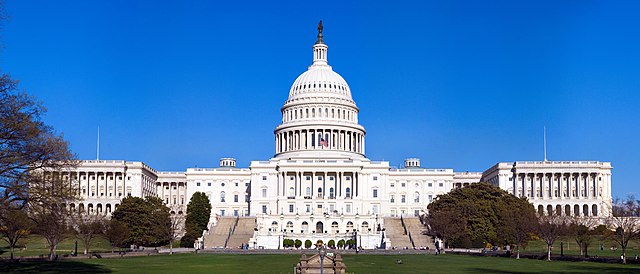By the time you read this column, the US House of Representatives will almost certainly have passed the following Joint Resolution:
"Resolved by the Senate and House of Representatives of the United States of America in Congress assembled, That, pursuant to section 202 of the National Emergencies Act (50 U.S.C. 1622), the national emergency declared by the finding of the President on February 15, 2019, in Proclamation 8444 (84 Fed. Reg. 4949) is here-by terminated."
The fake "emergency" in question powers US president Donald Trump's plan to divert money appropriated for other purposes to his pet "border wall" project (he used to swear up and down he'd find a way to make Mexico pay for the wall, but those days are clearly over).
The resolution's chances of passage by the US Senate are not quite as good, but the possibility exists.
After which, there are the absolute certainties that first, Trump will veto the resolution and second, neither house of Congress will be able to drum up the votes needed to override that veto.
Most news accounts mention that last part, but emphasize the notion that this Joint Resolution constitutes a damaging "rebuke" to the president.
In fact, it's just a cowardly way for Congress to avoid doing what it should do by pretending that it did "something," then go back to business as usual while Trump proceeds merrily on his wall-obsessed way.
Congressional Democrats started talking up impeachment before Trump was even inaugurated. They've spent two full years on various investigations of their own and on promoting the prospect that Special Counsel Robert Mueller would get them the goods.
Now Democrats have a majority in the House and Trump has served them up, on a veritable silver platter, a clear-cut, air-tight, irrefutable case for his own impeachment.
Twice in the last two months, Congress has denied Trump funding for his wall, weathering the longest partial "government shutdown" in US history rather than give it to him in December and denying it a second time with the funding bill he signed in February.
Congress saying "no" when the president asks for money is not an "emergency." He only gets to spend the money they give him, and he only gets to spend that money on the things they've told him he can spend it on.
As Article I, Section 9 of the US Constitution puts it, "No Money shall be drawn from the Treasury, but in Consequence of Appropriations made by Law." That's one of many provisions in the Constitution that make the US a representative democracy with separation of powers rather than a monarchy or dictatorship.
Trump's declaration of a fake "national emergency" was actually a declaration that he is now an absolute monarch, a dictator, no longer accountable to Congress for his actions.
If that's not covered by the Constitution's "high Crimes and Misdemeanors" clause outlining grounds for impeachment, what is?
And if Congress isn't prepared to respond accordingly, why should they or we bother with the continuing charade that they, or the law, matter at all?





